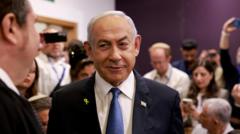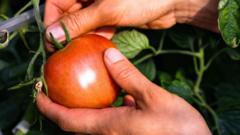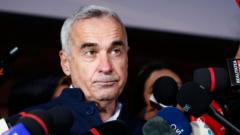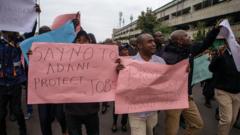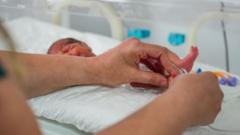The exclusion marks the first instance in the awards' history, driven by challenges in verifying the purity of honey products, particularly in light of alarming findings regarding adulteration across Europe and the UK.
World Beekeeping Awards Suspends Honey Awards Amid Fraud Concerns

World Beekeeping Awards Suspends Honey Awards Amid Fraud Concerns
The prestigious World Beekeeping Awards will not feature honey in their prizes for the upcoming year, citing rampant fraud within the global honey supply chain.
In a bid to combat honey fraud, the World Beekeeping Awards have announced the absence of honey prizes in 2024 due to concerns over adulteration and authenticity within the global honey supply chain. The decision, which was confirmed by Apimondia, the International Federation of Beekeepers’ Associations, represents a significant shift for the organization, as it has awarded honey products for many years.
Apimondia explained that the choice was prompted by difficulties in ensuring valid testing for adulterated honey. A concerning report from the European Commission in March 2023 revealed that nearly half of honey samples tested from various sources, including the UK, were suspected to have been tampered with, primarily diluted with cheaper sugar syrups.
In light of this fraudulent crisis, scientists from Cranfield University announced a breakthrough method in August, forming the basis of a new technique to detect fake honey without opening jars. Dr. Anastasiadi, leading the research, emphasized the method’s capacity to reliably confirm honey's authenticity and origin, potentially alleviating concerns surrounding honey fraud.
Although honey will be absent from the awards in 2024, Apimondia anticipates promoting regional honey varieties through innovative initiatives, including the introduction of a 'honey map' for Scandinavian honeys. This initiative aims to spotlight the distinct flavors of regional honey while introducing beekeepers and consumers to the stories of local honey producers, influenced by the region's climatic and geographical attributes.
Jeff Pettis, president of Apimondia, reaffirmed the federation's commitment to enhancing honey testing methods. He advocated for public awareness regarding the authenticity of locally sourced honey, which he claimed tends to be less adulterated.
A spokesperson for the UK's Department for Environment, Food, and Rural Affairs (Defra) indicated that the agency takes food fraud extremely seriously, collaborating with enforcement authorities to ensure that honey in the UK complies with stringent quality standards and that producers operate on equitable terms.
The suspension of honey prizes in the coming World Beekeeping Awards serves as a crucial reminder of the ongoing challenges facing the honey industry, sparking discussions about integrity, quality assurance, and consumer trust.
Apimondia explained that the choice was prompted by difficulties in ensuring valid testing for adulterated honey. A concerning report from the European Commission in March 2023 revealed that nearly half of honey samples tested from various sources, including the UK, were suspected to have been tampered with, primarily diluted with cheaper sugar syrups.
In light of this fraudulent crisis, scientists from Cranfield University announced a breakthrough method in August, forming the basis of a new technique to detect fake honey without opening jars. Dr. Anastasiadi, leading the research, emphasized the method’s capacity to reliably confirm honey's authenticity and origin, potentially alleviating concerns surrounding honey fraud.
Although honey will be absent from the awards in 2024, Apimondia anticipates promoting regional honey varieties through innovative initiatives, including the introduction of a 'honey map' for Scandinavian honeys. This initiative aims to spotlight the distinct flavors of regional honey while introducing beekeepers and consumers to the stories of local honey producers, influenced by the region's climatic and geographical attributes.
Jeff Pettis, president of Apimondia, reaffirmed the federation's commitment to enhancing honey testing methods. He advocated for public awareness regarding the authenticity of locally sourced honey, which he claimed tends to be less adulterated.
A spokesperson for the UK's Department for Environment, Food, and Rural Affairs (Defra) indicated that the agency takes food fraud extremely seriously, collaborating with enforcement authorities to ensure that honey in the UK complies with stringent quality standards and that producers operate on equitable terms.
The suspension of honey prizes in the coming World Beekeeping Awards serves as a crucial reminder of the ongoing challenges facing the honey industry, sparking discussions about integrity, quality assurance, and consumer trust.




